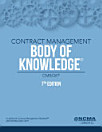Wrap Contracts: Foundations and Ramifications
ກ.ລ. 2013 · Oxford University Press
ປຶ້ມອີບຸກ
232
ໜ້າ
family_home
ມີສິດ
info
reportບໍ່ໄດ້ຢັ້ງຢືນການຈັດອັນດັບ ແລະ ຄຳຕິຊົມ ສຶກສາເພີ່ມເຕີມ
ກ່ຽວກັບປຶ້ມ e-book ນີ້
When you visit a website, check your email, or download music, you enter into a contract that you probably don't know exists. "Wrap contracts" - shrinkwrap, clickwrap and browsewrap agreements - are non-traditional contracts that look nothing like legal documents. Contrary to what courts have held, they are not "just like" other standard form contracts, and consumers do not perceive them the same way. Wrap contract terms are more aggressive and permit dubious business practices, such as the collection of personal information and the appropriation of user-created content. In digital form, wrap contracts are weightless and cheap to reproduce. Given their low cost and flexible form, businesses engage in "contracting mania" where they use wrap contracts excessively and in a wide variety of contexts. Courts impose a duty to read upon consumers but don't impose a duty upon businesses to make contracts easy to read. The result is that consumers are subjected to onerous legalese for nearly every online interaction. In Wrap Contracts: Foundations and Ramifications, Nancy Kim explains why wrap contracts were created, how they have developed, and what this means for society. She explains how businesses and existing law unfairly burden users and create a coercive contracting environment that forces users to "accept" in order to participate in modern life. Kim's central thesis is that how a contract is presented affects and reveals the intent of the parties. She proposes doctrinal solutions - such as the duty to draft reasonably, specific assent, and a reconceptualization of unconscionability - which fairly balance the burden of wrap contracts between businesses and consumers.
ກ່ຽວກັບຜູ້ຂຽນ
Nancy S. Kim is Professor of Law at California Western School of Law, and Visiting Professor at Rady School of Management, University of California, San Diego. She is Chair-Elect of the Contracts Section of the Association of American Law Schools, and a member of its Executive Committee of the Commercial and Related Consumer Law Section, as well as a past member of its Executive Committee of the Internet and Computer Law Section. She is a former Ford Foundation fellow and Women's Law and Public Policy fellow. Previously she was Vice President of Business and Legal Affairs of Exigen, Inc., a multinational software and services company. She has worked in business and legal capacities for several Bay Area technology companies and was an associate in the corporate law departments at Heller Ehrman White & McAuliffe in San Francisco and Gunderson Dettmer in Menlo Park. Professor Kim has published more than twenty scholarly articles and essays, and her name has appeared in media outlets including the Boston Globe, slate.com, the San Diego Tribune, and the San Francisco Chronicle. She is a Contributing Editor to the Contracts Law Prof Blog, the official blog of the AALS section on Contracts.
ໃຫ້ຄະແນນ e-book ນີ້
ບອກພວກເຮົາວ່າທ່ານຄິດແນວໃດ.
ອ່ານຂໍ້ມູນຂ່າວສານ
ສະມາດໂຟນ ແລະ ແທັບເລັດ
ຕິດຕັ້ງ ແອັບ Google Play Books ສຳລັບ Android ແລະ iPad/iPhone. ມັນຊິ້ງຂໍ້ມູນໂດຍອັດຕະໂນມັດກັບບັນຊີຂອງທ່ານ ແລະ ອະນຸຍາດໃຫ້ທ່ານອ່ານທາງອອນລາຍ ຫຼື ແບບອອບລາຍໄດ້ ບໍ່ວ່າທ່ານຈະຢູ່ໃສ.
ແລັບທັອບ ແລະ ຄອມພິວເຕີ
ທ່ານສາມາດຟັງປຶ້ມສຽງທີ່ຊື້ໃນ Google Play ໂດຍໃຊ້ໂປຣແກຣມທ່ອງເວັບຂອງຄອມພິວເຕີຂອງທ່ານໄດ້.
eReaders ແລະອຸປະກອນອື່ນໆ
ເພື່ອອ່ານໃນອຸປະກອນ e-ink ເຊັ່ນ: Kobo eReader, ທ່ານຈຳເປັນຕ້ອງດາວໂຫຼດໄຟລ໌ ແລະ ໂອນຍ້າຍມັນໄປໃສ່ອຸປະກອນຂອງທ່ານກ່ອນ. ປະຕິບັດຕາມຄຳແນະນຳລະອຽດຂອງ ສູນຊ່ວຍເຫຼືອ ເພື່ອໂອນຍ້າຍໄຟລ໌ໄໃສ່ eReader ທີ່ຮອງຮັບ.






